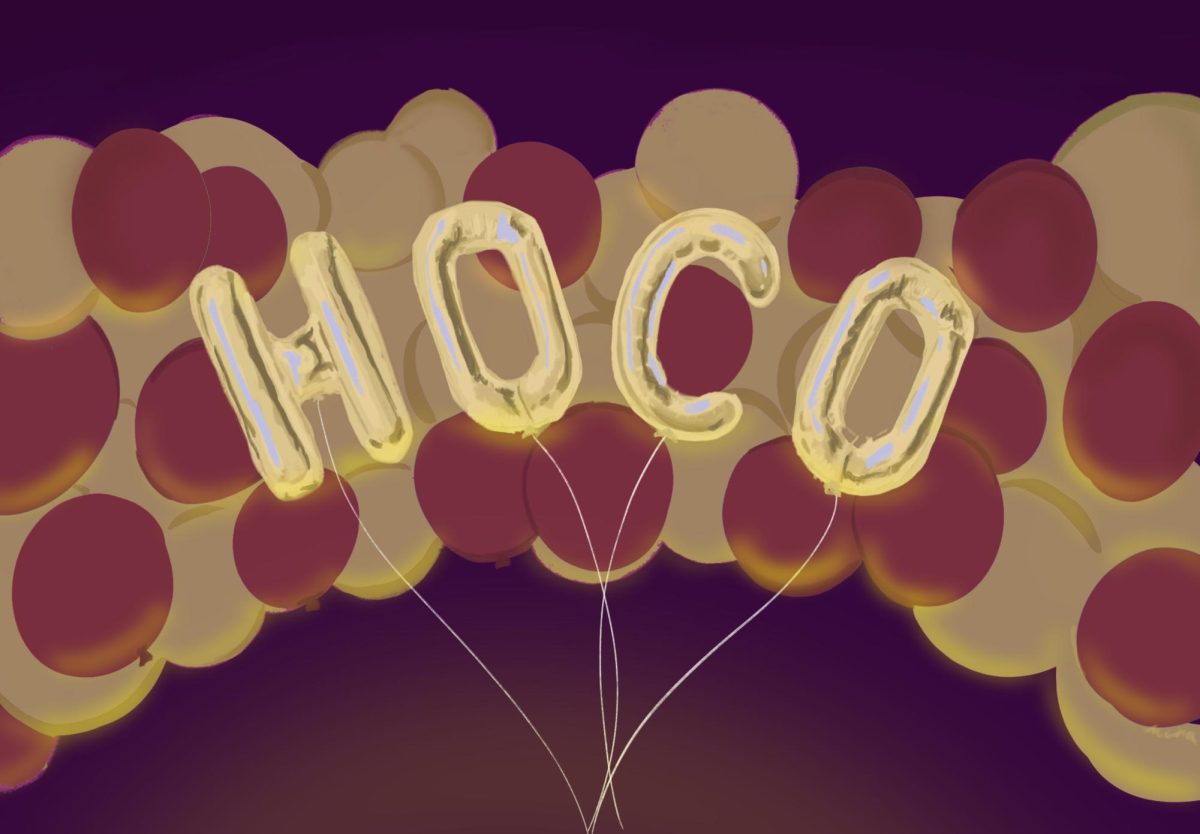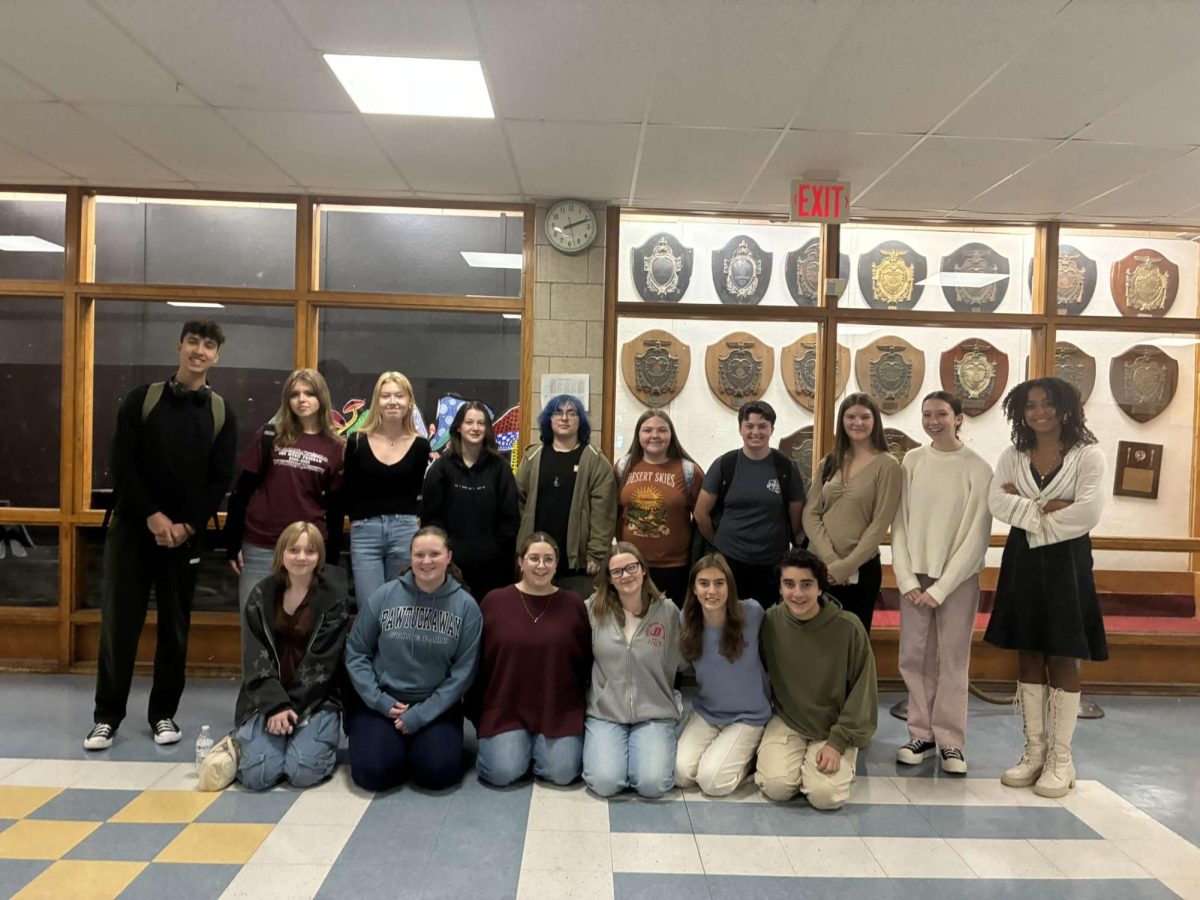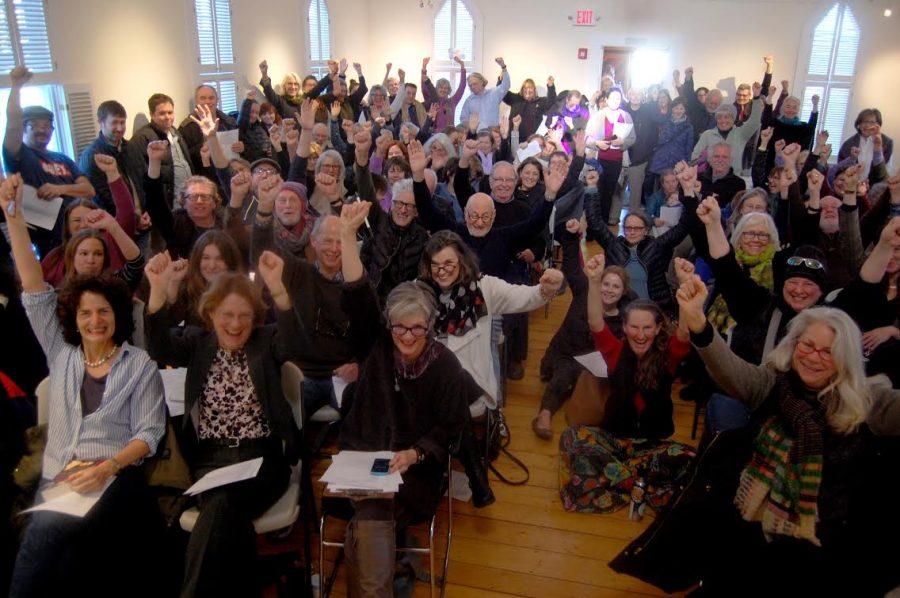“Don’t Tread On Us”
Writer’s Resist event defends free speech
Cape Ann residents at the Writer’s Resist event Sunday show support for freedom of speech and democracy
January 20, 2017
The Rocky Neck Cultural Center was overflowing with optimism last Sunday as more than 100 locals gathered to showcase the hope this community still has for the nation. From reading famous works to original pieces, the Writers Resist: Don’t Tread On Us event enabled residents to share their perception of free speech and what a democracy truly is.
“The nonviolent resister not only refuses to shoot his opponent but he also refuses to hate him,” recited event coordinator JoeAnn Hart to the audience. This Martin Luther King Jr. quote not only served as an inspiring introduction to the event, but also epitomized the purpose of the event and the role of its participants.
“We wish to bypass direct political discourse in favor of an inspired focus on the future, and how we, as writers, can be a unifying force for the protection of democracy,” said event organizers on the Writers Resist Website. “In order for us to heal and move forward, individually and as a nation, we believe people need something to be for in this anxious moment.”
The event acted as a platform for citizens to voice their hopes for the United States, without directly mentioning any names, parties, or loaded opinions associated with the 2016 election. More than 25 locals from all walks of life read poems, speeches, original pieces, and a variety of other works that promoted democracy.
“I am here in great sadness and anger,” said speaker Greg Cook. “So I’m here to rally our team, to rally our resistance.”
Rae Francoeur used her own experience in fighting an “unjust” winter parking ban in Rockport to convey the challenges and rewards found in taking civic action. She then humorously encouraged the audience to follow a five step plan when seeking to initiate change on any level.
“One: Pick a cause that really riles you. Two: Find cohorts. Three: Put it in writing. Four: Agitate. Five: Don’t gloat.”
Janet Parsons also used an instance of resilience on Cape Ann to show that the protection of justice has always been a trend in America, and in this community.
“Cape Ann has always taken a stand for free speech,” said Parsons.
Parsons then went on to explain the courage of the First Universalist Church in Rockport during the mid-nineteenth century when it was smoke bombed during an abolitionist’s speech. It was the only church in the community that had allowed him to speak to its parishioners due to the tensions surrounding the topic of slavery, and the minister and audience stayed in the building and listened to the rest of the speech even as smoke filled the room in order to defend their beliefs.
Others read from famous American works, including the First Amendment from the Bill of Rights and Maya Angelou’s “Still I Rise,” while some used their time at the podium to present their perspectives through song and other forms of literature.
Amanda Cook lead the audience in singing “A Hard Rain’s A-Gonna Fall” by Bob Dylan, which filled the room with a somber yet hopeful breath that would linger throughout the rest of the event.
The Gillnetter’s Caroline Enos also read her editorial “Democracy depends on freedom of the press.” The role of American journalism was dissected and reassessed by many of the readers, and was a prominent point for discussion throughout the afternoon.
While the Writer’s Resist event promoted optimism in communities like Cape Ann across the country, speakers like Peter Anastas, who quoted Henry David Thoreau’s “Slavery in Massachusetts,” made it clear that such optimism must turn into action.
“The law will never make a man free; it is men who have got to make the law free.”
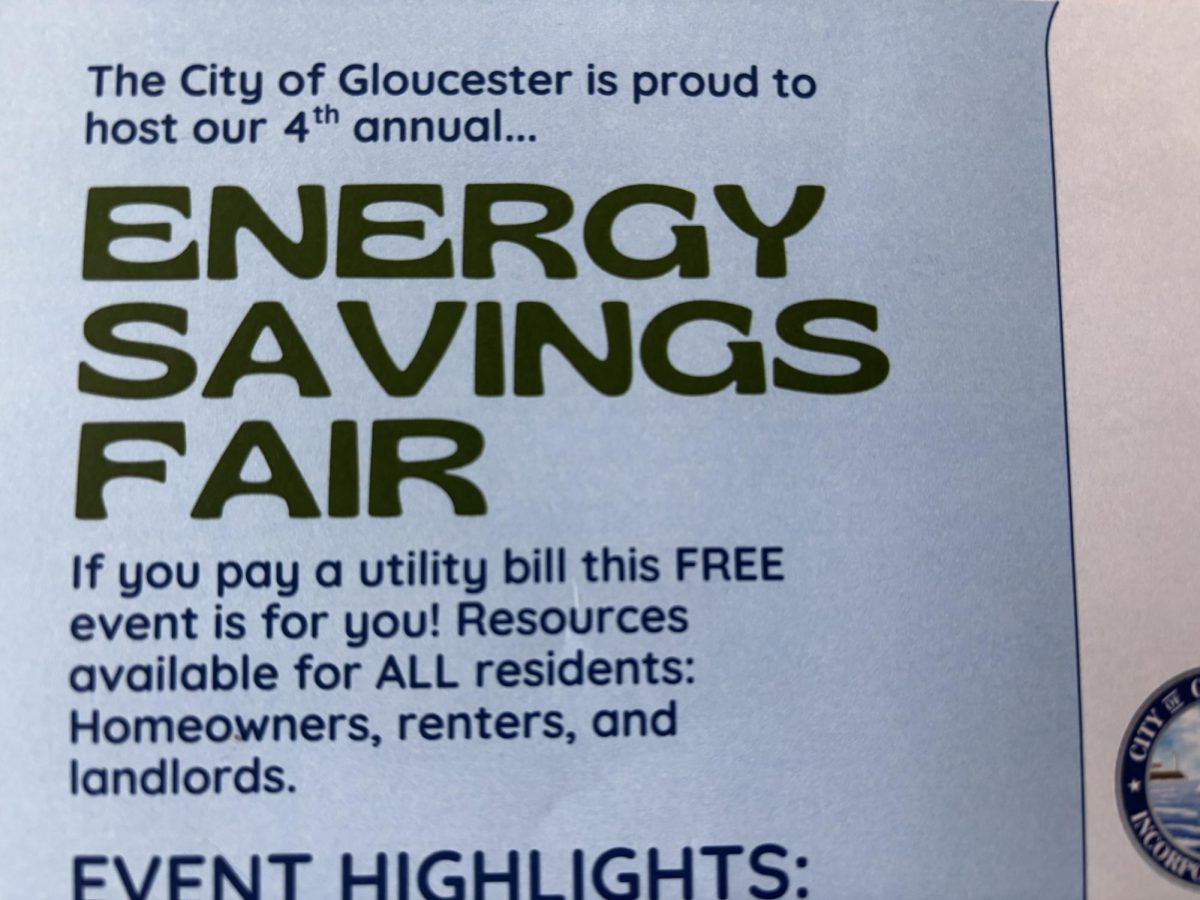
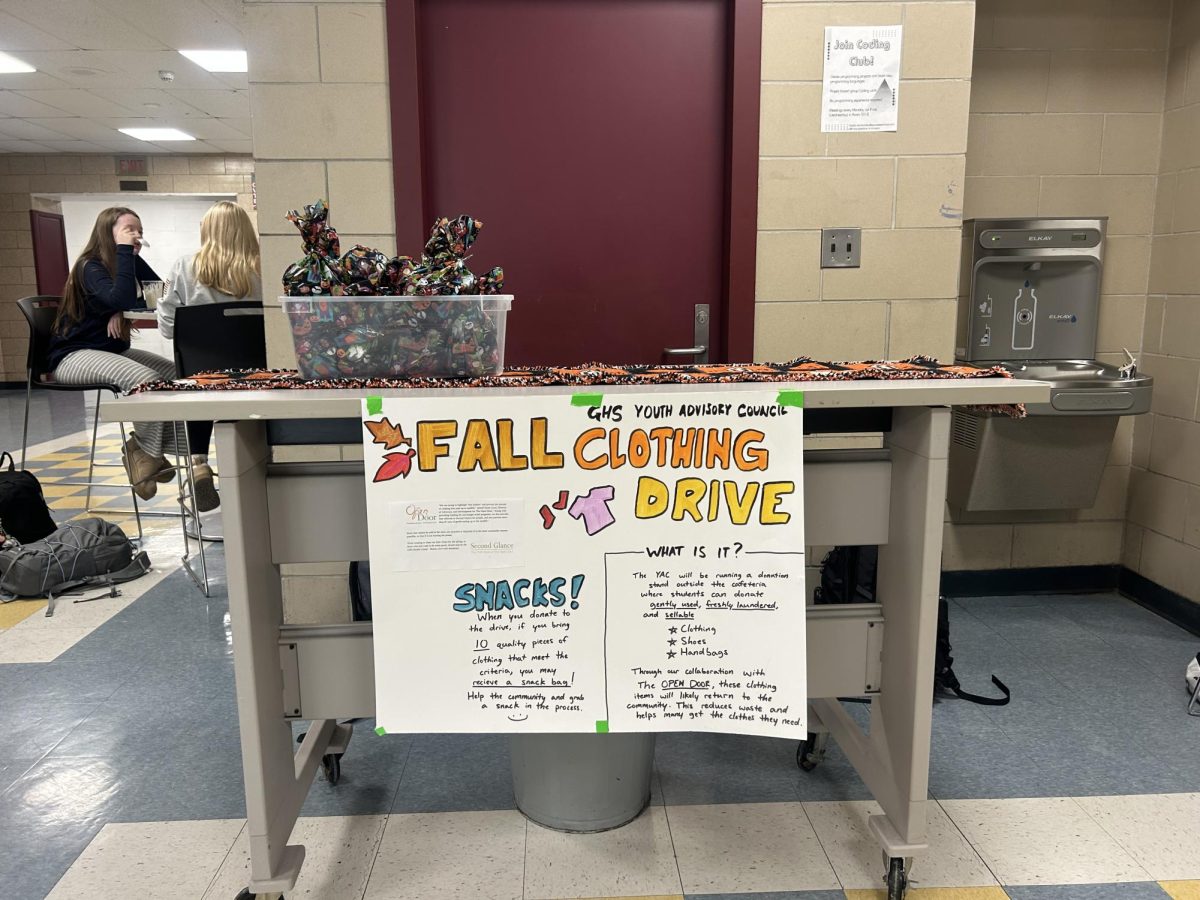
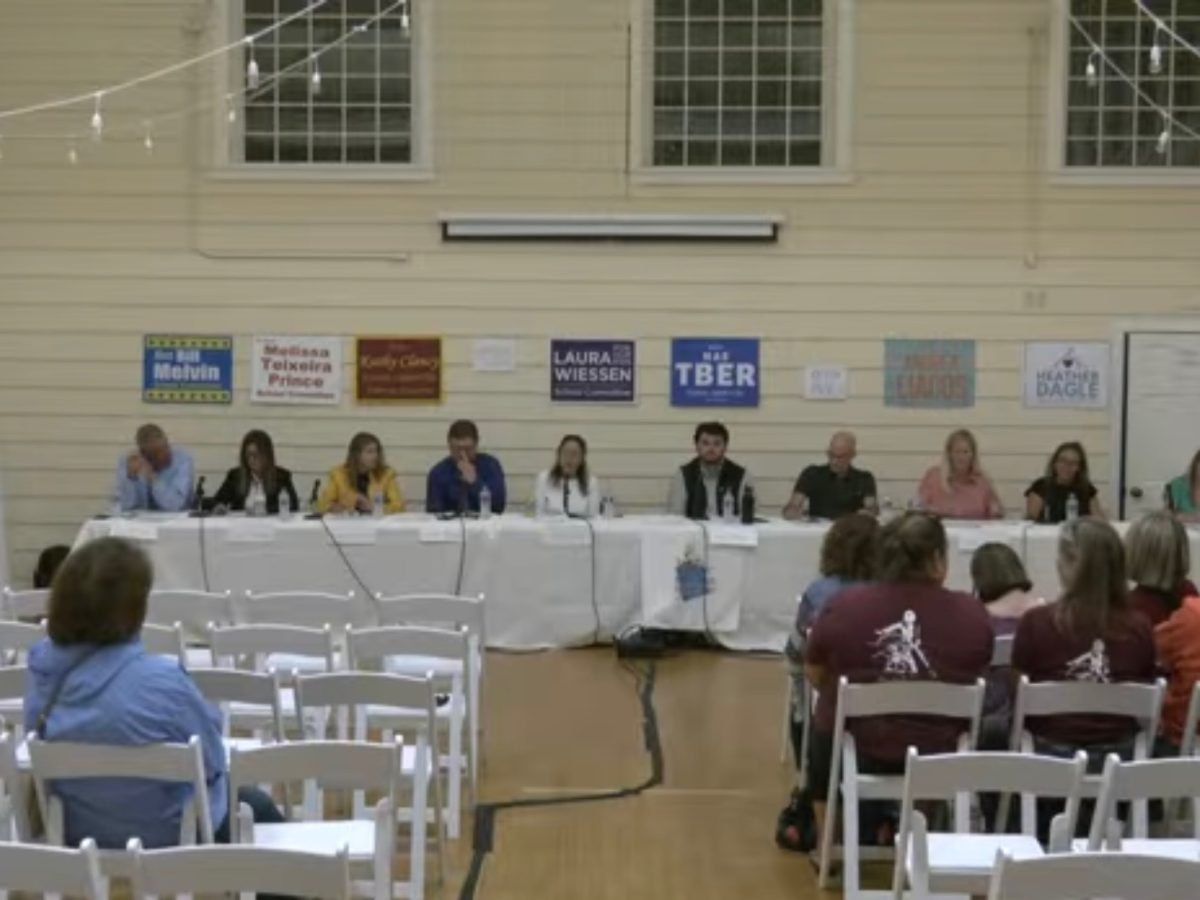







![The Volleyball team poses after their win. [Photo courtesy of GHS Volleyball]](https://thegillnetter.com/wp-content/uploads/2025/10/IMG_6936.jpg)
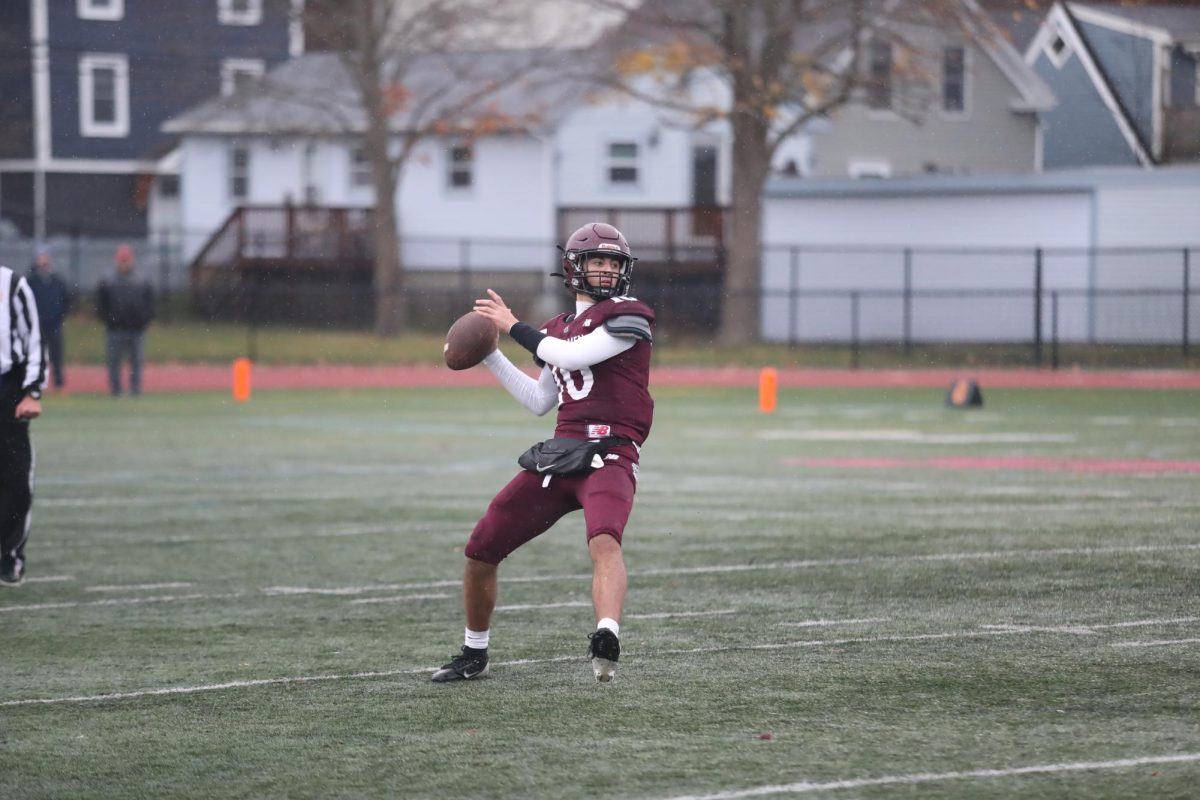
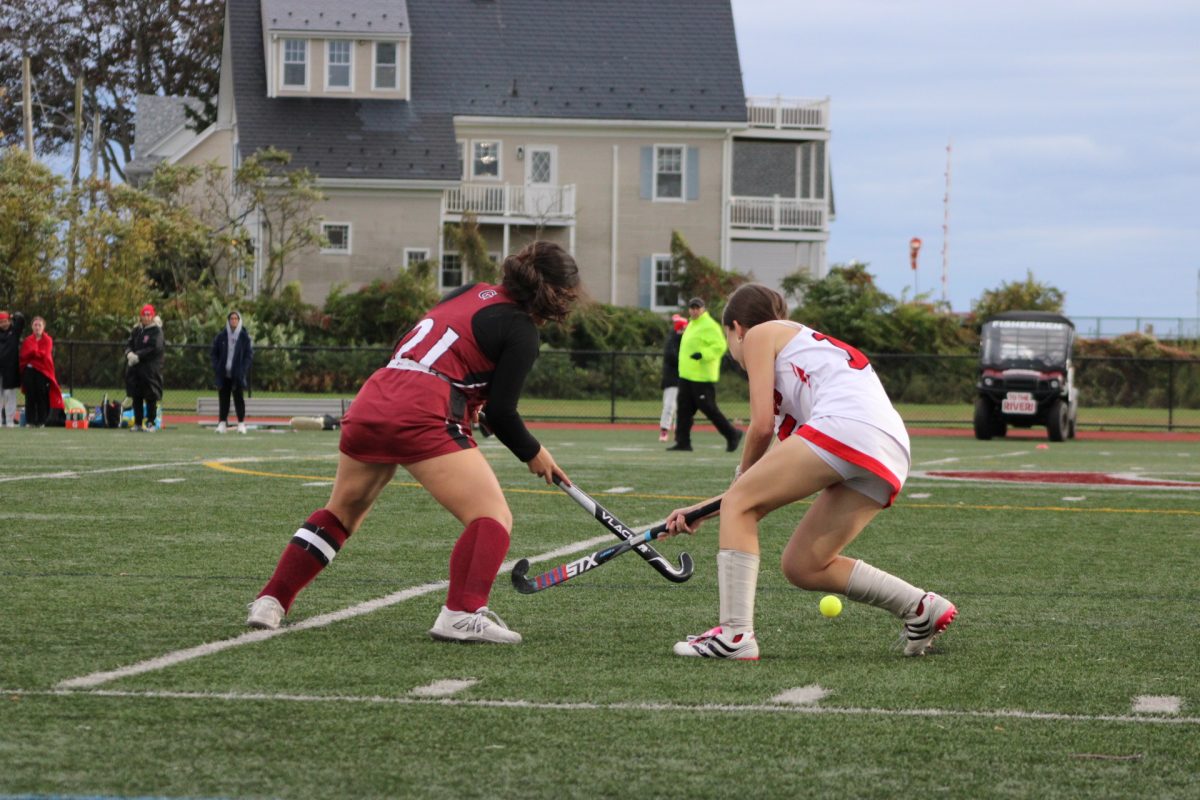

![The GHS/MERHS senior cross country runners pose together on Senior Night. [Photo courtesy of Manchester-Essex Athletics]](https://thegillnetter.com/wp-content/uploads/2025/10/Screenshot-2025-10-10-at-11.18.29-AM.png)

